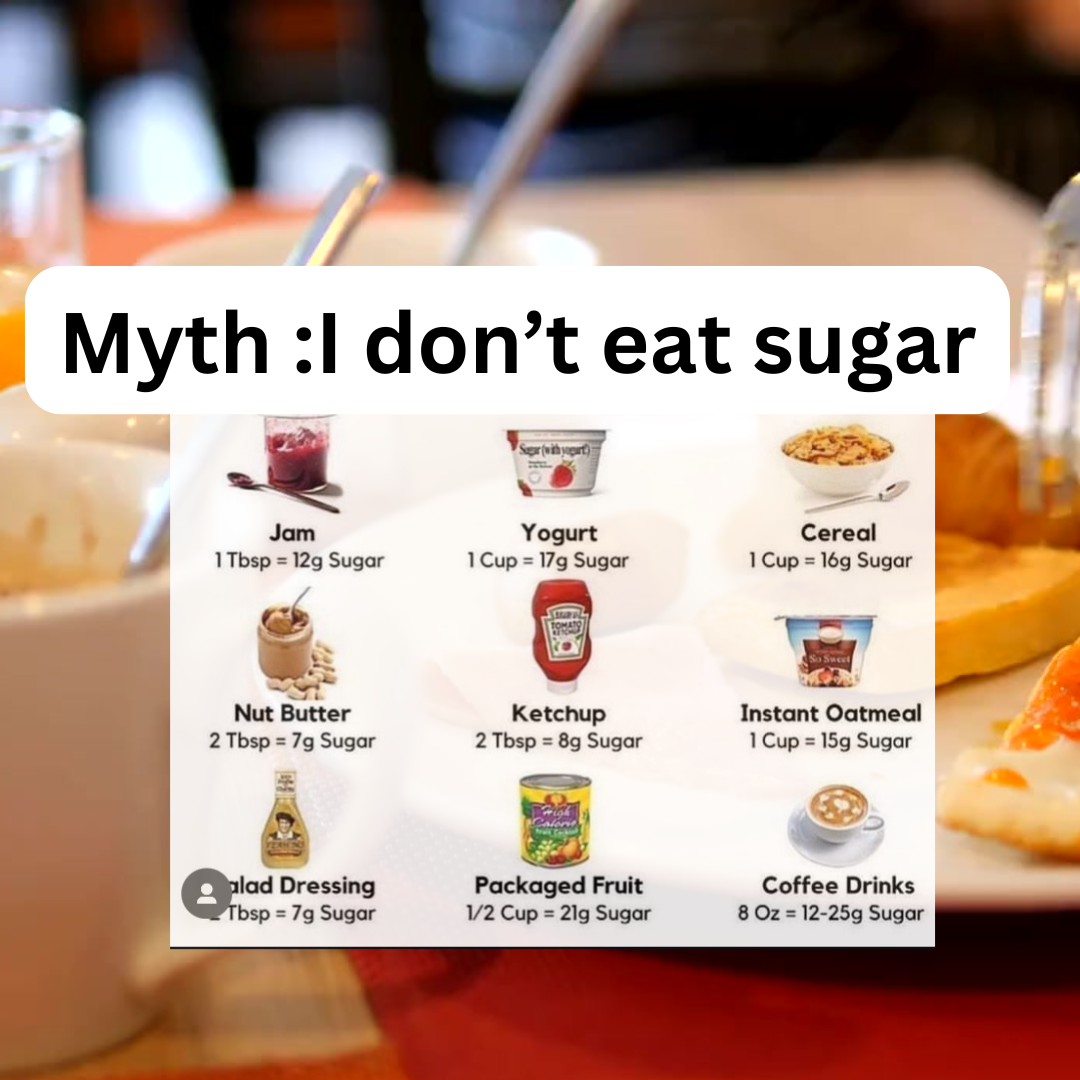
The Myth of "Not Eating Much Sugar"
Share
In today’s health-conscious world, many of us are mindful of sugar intake. We often hear people say, “I don’t eat much sugar,” believing they’ve significantly cut down on it. But is this really true? The reality is that sugar is lurking in more places than we think, and even those who believe they’ve cut back might still be consuming too much.
1. What Does "Not Much" Sugar Really Mean?
Many people associate sugar only with sweets, candy, and desserts. While cutting down on these is a good start, sugar sneaks into a vast number of everyday foods. If you’re not actively reading labels, you may be consuming more than you realize.
2. The Hidden Sugars in "Healthy" Foods
It's not just cakes and sodas that pack a sugary punch. Many foods marketed as “healthy” or “low-fat” actually contain high levels of added sugar to enhance flavor. Common culprits include:
- Granola bars
- Flavored yogurts
- Salad dressings
- Sauces like ketchup and barbecue sauce
-
Breakfast cereals
Even some savory snacks like crackers and chips may have hidden sugars, making it difficult to gauge true sugar intake.
3. Misleading Labels and Sugar Substitutes
Food manufacturers are smart in how they label products. Terms like “natural sweeteners” or “no added sugar” can be misleading. Products may still contain sugar alternatives like agave syrup, honey, or coconut sugar, which, while marketed as “healthier,” still impact blood sugar levels.
On top of that, companies often break down sugar into different forms like glucose, dextrose, or maltose so they don’t appear as high on the ingredients list. This trick makes it seem like the product has less sugar than it actually does.
4. The Difference Between Natural and Added Sugars
It’s essential to distinguish between natural sugars (found in fruits, vegetables, and dairy) and added sugars. While both types of sugar affect your blood sugar, natural sugars come with fiber, vitamins, and other nutrients that help mitigate their impact. Added sugars, however, are often just empty calories, providing no nutritional benefits and contributing to weight gain, inflammation, and chronic diseases like type 2 diabetes and heart disease.
5. Health Impacts of Hidden Sugar
Even if you believe you’re not eating much sugar, the hidden sugar in processed foods can still affect your health. Overconsumption of sugar has been linked to:
- Weight gain and obesity
- Type 2 diabetes
- Heart disease
- Tooth decay
- Mood swings and energy crashes
Reducing sugar isn’t just about cutting calories; it’s about protecting your long-term health.
6. How to Truly Cut Down on Sugar
To reduce sugar effectively, it’s essential to go beyond just avoiding obvious sugary treats. Here are some practical tips:
- Read Labels: Always check the ingredients list for hidden sugars.
- Opt for Whole Foods: Processed foods are the main sources of hidden sugar. Stick to whole, unprocessed foods whenever possible.
- Watch for Sneaky Sources: Be mindful of sauces, dressings, and even "healthy" snacks that may have added sugars.
- Use Natural Sweeteners Sparingly: Even honey and agave should be used in moderation.
- Hydrate with Water: Sugary beverages are a major source of added sugars. Stick with water, herbal teas, or beverages without added sweeteners.
Conclusion: Sugar is Everywhere
The myth of “not eating much sugar” is often rooted in misunderstanding. Sugar hides in more foods than you might think, and it’s easy to overlook it when you’re not actively reading labels or paying attention to ingredient lists. By becoming more aware of these hidden sugars, you can make healthier choices that truly reflect a lower sugar lifestyle.
